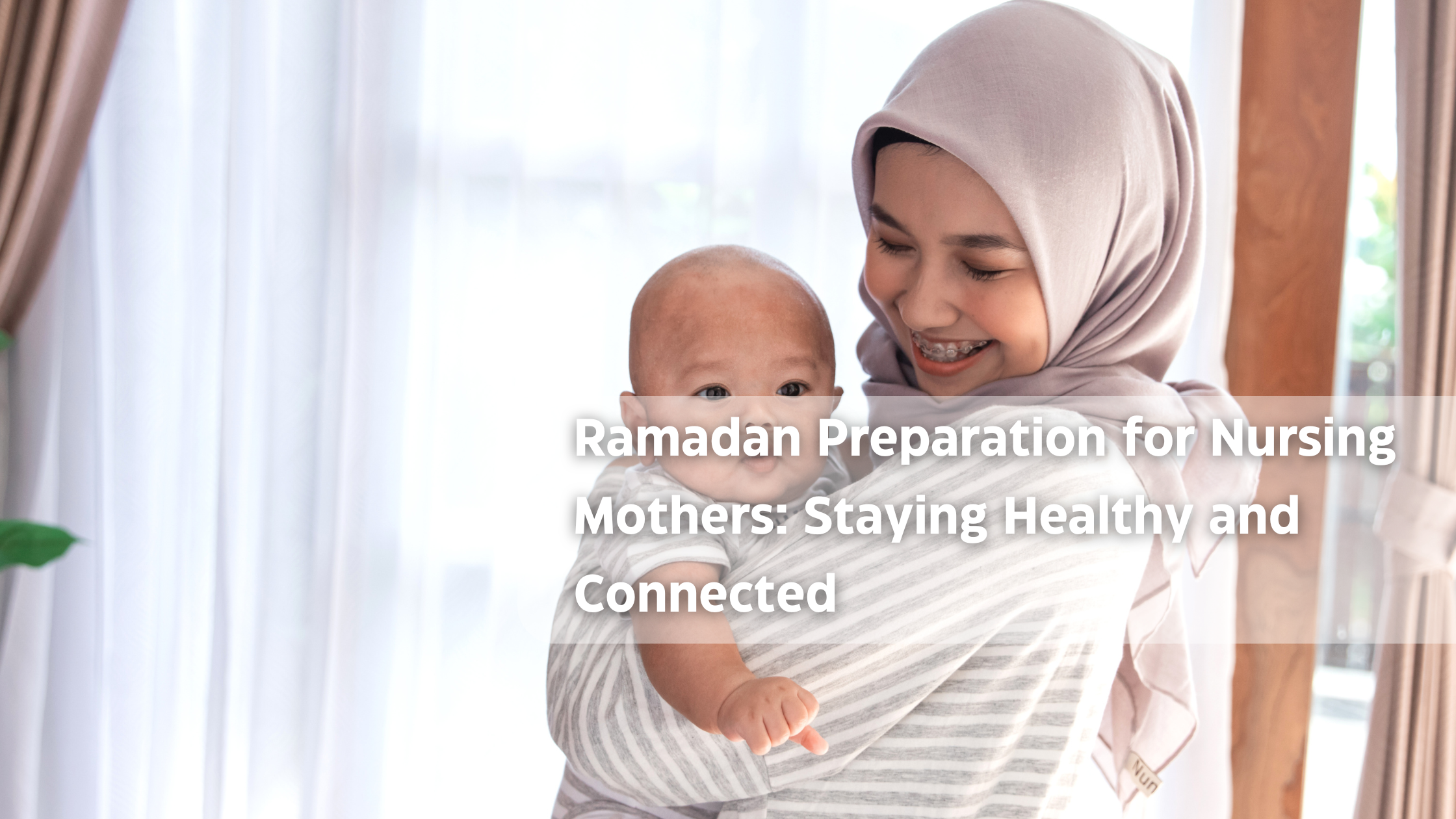Ramadan Preparation for Nursing Mothers: Staying Healthy and Connected
Preparing for Ramadan: Tips for Nursing Mothers

Understanding the Ramadan Fasting Period
Ramadan is a sacred month observed by Muslims worldwide, marked by fasting from dawn to sunset. For nursing mothers, this can be challenging as it may affect milk production and energy levels. Since no food or drink is consumed during daylight hours, breastfeeding mothers need to adjust their feeding schedules and ensure they stay hydrated and nourished during non-fasting hours. Planning night feedings, consuming nutrient-rich meals during Suhoor (pre-dawn meal) and Iftar (breaking fast), and staying well-hydrated are essential steps. Consulting a doctor before fasting is crucial to ensure both mother and baby remain healthy throughout Ramadan.
Nutrition and Hydration for Moms
Proper nutrition is essential for nursing mothers during Ramadan to maintain energy and support milk production. Focus on nutrient-dense foods during non-fasting hours, including fruits, vegetables, lean proteins, whole grains, and healthy fats. Staying hydrated is crucial, so drink plenty of water throughout the night and avoid sugary drinks that can lead to dehydration. Smoothies made with fruits and vegetables provide a quick and nutritious boost. Slow-release carbohydrates like oatmeal help sustain energy levels throughout the day. Never skip Suhoor, as it plays a vital role in keeping you nourished and energized while breastfeeding.
Creating a Support System (image 1)
Support is vital for nursing mothers during Ramadan. Open communication with family members about your needs is important to ask for help with household chores and childcare. Connecting with other fasting nursing mothers can provide valuable tips and emotional support. Online forums or local breastfeeding groups can also be helpful. Always discuss any concerns with your healthcare provider for personalized advice, and consider consulting a lactation consultant to maintain milk supply while fasting. Don’t hesitate to ask for help when needed, as caring for yourself ensures you can better care for your baby.

The Importance of Self-Care During Ramadan
Prioritizing Your Health and Well-being
Self-care is essential for nursing mothers during Ramadan, as their well-being directly impacts their baby’s health. Prioritize relaxation and stress relief through gentle exercises like walking or yoga to boost energy and mood. Listen to your body and rest when needed and stay cool to prevent dehydration by wearing breathable clothing and using a fan or air conditioning. Maintain personal hygiene to feel refreshed and energized. Don’t forget to take any prescribed medications and consult your doctor if you have health concerns. Caring for yourself ensures you can continue to nurture your baby effectively.
The Role of Adequate Sleep and Rest (image 1)
Adequate sleep is essential for nursing mothers during Ramadan to maintain energy and support milk production. Try to nap when your baby sleeps to stay rested. Create a calm sleep environment by using curtains to block light and keeping your room cool and quiet. Maintain a regular sleep schedule as much as possible and go to bed early to maximize rest before Suhoor. Avoid caffeine in the evening, as it can disrupt sleep. Practicing relaxation techniques like deep breathing or gentle stretching before bed can improve sleep quality. Prioritizing rest helps sustain both your health and milk supply.

Emotional Support and Coping Strategies
Fasting while nursing can be emotionally challenging, and it’s normal to feel stressed or overwhelmed. Reach out to friends, family, or your partner to share your feelings and seek support. Practicing mindfulness or meditation for a few minutes each day can help reduce stress. Joining a support group for nursing mothers allows you to connect with others who understand your experience. Remember, it's okay to have difficult days and be kind to yourself and celebrate small wins. If you're feeling overwhelmed, talking to a counselor can provide valuable coping strategies. Your emotional well-being is essential for both you and your baby.
Navigating the Post-Pregnancy Phase
The Transition from Pregnancy to Nursing
The transition from pregnancy to nursing is a significant change, as your body recovers while producing milk. Be patient with yourself and expect some physical discomfort as you heal. Hormonal shifts can impact your mood and energy levels, so prioritize self-care. When ready, start with gentle postpartum exercises like walking or stretching, giving your body time to recover before intense workouts. Stay in touch with your healthcare provider for guidance and support. Every postpartum journey is unique, so take it one day at a time and allow yourself the grace to heal at your own pace.
Balancing Milk Production with Fasting
Maintaining milk supply while fasting requires careful planning. Stay hydrated by drinking 8-10 glasses of water during non-fasting hours and eat nutrient-rich foods, including protein, healthy fats, and complex carbs. Pumping milk at night can help sustain your supply. Monitor your baby for hunger or dehydration signs, and if needed, consider breaking your fast in Islam permits exceptions for nursing mothers. Listen to your body and prioritize your baby’s needs. If you notice a drop in milk supply, consult a lactation expert for personalized guidance to ensure both you and your baby stay healthy during Ramadan.

Postpartum and Long-Term Wellness Goals
For long-term health beyond Ramadan, set realistic wellness goals for the postpartum period, focusing on gradual, sustainable changes. Aim for a balanced diet with plenty of fruits, vegetables, and whole grains, and incorporate gentle exercise to boost energy and mood. Prioritize both physical and mental health, seeking support from a mom's group or your healthcare provider. Regular check-ups help monitor your recovery and overall health. Remember, your wellness journey is ongoing small, consistent steps lead to lasting benefits. Be patient and kind to yourself as you navigate this new phase of life.
Conclusion
Fasting during Ramadan while nursing can be challenging, but with the right preparation, support, and self-care, it is manageable. Prioritizing nutrition, hydration, rest, and emotional well-being will help maintain both your health and milk supply. Remember to listen to your body, seek support from loved ones, and consult healthcare professionals when needed. Every mother’s journey is unique, so be patient with yourself and make adjustments as necessary. Your well-being is just as important as your baby’s, and taking small, mindful steps will help you navigate this special time with confidence and ease.

